Biblical Reflection and Canon of Scripture
Neil Dias
Published by Frontier India, 2018.
Biblical Reflection and Canon of Scripture
Neil Dias
Copyright 2016 Neil Dias
All rights reserved.
ISBN-13: 978-1523278954
ISBN-10: 1523278951
D edicated to all seeking the truth and light.
Preface |
| Biblical Reflections |
| Part II |
| Part III |
| Canon of Scripture |
| Part II |
| Part III |
I t has been more than a decade since I began my personal studies on Scripture and Church teachings. Over these years, I have referenced 100s of books or written sources on the Bible and the Catholic Church, own several dozens of Study Bible apparatuses, read the Church Fathers (and still reading), explored Catholicism and Christian apologetics. The point is that by the grace and blessing of God, the knowledge I have is not very common. And its useless, if I dont share it - after all, whatever skills we have we have to use it to glorify the Lord and help his holy Church.
Most importantly, it fulfills the demand from the Holy Apostolic See in Rome in her dogmatic document Dei Verbum which reads, "The sacred synod also earnestly and especially urges all the Christian faithful, especially Religious, to learn by frequent reading of the divine Scriptures the "excellent knowledge of Jesus Christ" (Phil. 3:8). "For ignorance of the Scriptures is ignorance of Christ."(5) Therefore, they should gladly put themselves in touch with the sacred text itself, whether it be through the liturgy, rich in the divine word, or through devotional reading, or through instructions suitable for the purpose and other aids which, in our time, with approval and active support of the shepherds of the Church, are commendably spread everywhere." and "In this way, therefore, through the reading and study of the sacred books "the word of God may spread rapidly and be glorified" (2 Thess. 3:1) and the treasure of revelation, entrusted to the Church, may more and more fill the hearts of men. Just as the life of the Church is strengthened through more frequent celebration of the Eucharistic mystery, similar we may hope for a new stimulus for the life of the Spirit from a growing reverence for the word of God, which "lasts forever" (Is. 40:8; see 1 Peter 1:23-25). (Dei Verbum 25, 26)
The Canon of the Church also says the following; "They (Christ's faithful) have the right, indeed at times duty, in keeping with their knowledge, competence and position, to manifest to the sacred Pastors their views on matters which concern the good of the Church. They have the right also to make their views known to others of Christ's faithful". (Canon 212.3) and "Lay people have the duty and the right to acquire the knowledge of Christian teaching ..... so that they may be able to live according to this teaching, to proclaim it and if necessary to defend it, and maybe play their part in the exercise of the apostolate". (Canon 229.1)
(O T = Old Testament , NT = New Testament, CCC = Catechism of the Catholic Church)
This Book [is] the most valuable thing that this world affords. Here is Wisdom; this is the royal Law; these are the lively Oracles of God. With these words the Moderator of the Church of Scotland hands a Bible to the new monarch in Britains coronation service. These words echo the King James Bible translators, who wrote in 1611: Gods sacred Word... is that inestimable treasure that excelleth all the riches of the earth. (Preface: English Standard Version Bible)
The Bible is a record of Gods dealing with his people. This record spans thousands of years, although in its written form can be attributed to about 40 authors or more, over a period of 15 centuries, in at least three languages. In the pages of the Bible, which is but a compilation of 73 separate books or letters, God meets man and declares his holy oracles, he lets man know what his divine will is and what the purpose of the existence of man is.
God is an infinite being and man is, but, finite and this limitation of man is also accounted for in Gods communication in the Bible. In essence, although holy and inerrant (in the matters of faith and morals) and way superior to human wisdom that the Bible is, it is really the loving Gods baby-talk to us. Scripture reveals God to be Love (1 Jn 4:8), and so much does he love man that he does not use his own divine, perfect and infinite level of wisdom and language when he converses with man, but uses the imperfect language of man himself so that the man might understand (in some way) the divine precepts of the Almighty. In order to reveal himself to men, in the condescension of his goodness God speaks to them in human words. (CCC 101). This is why it is imperative to understand the cultural context of each of the books of the Bible, since God, because of variableness of human knowledge, used the simple language and the available knowledge to the immediate people to whom those books (such as Genesis, Exodus, Isaiah) were revealed. Gods message in those ancient books transcends time and is applicable to us too, but we can only properly understand that message if we give heed to the underlying purpose of the revelation.
It is truly amazing that in Scripture, God comes down to our lowly level of human communication using human language just so that we can understand him, in the same way that Christ Jesus, Gods Son, comes down to our level in flesh just so that we could be saved (cf. Phil 2: 6-11). Indeed the words of God, expressed in the words of men, are in every way like human language, just as the Word of the eternal Father, when he took on himself the flesh of human weakness, became like men.


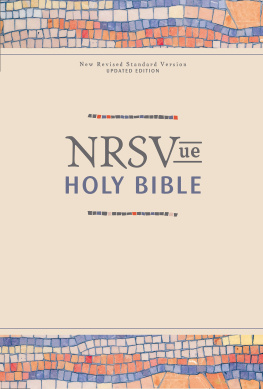
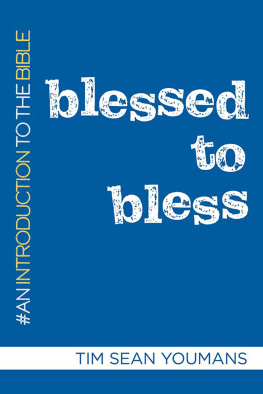
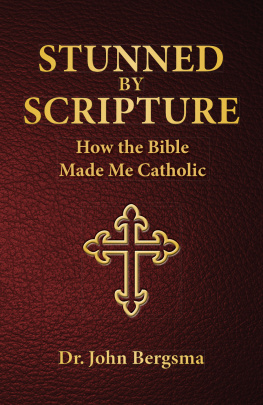
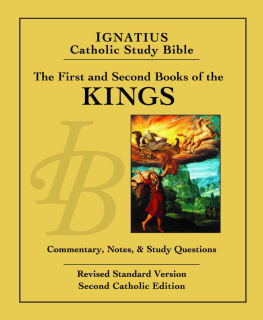
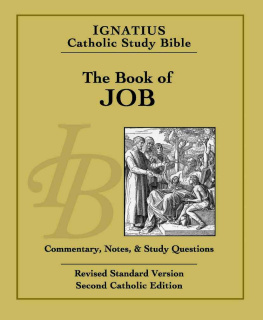
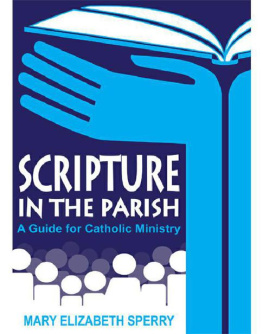

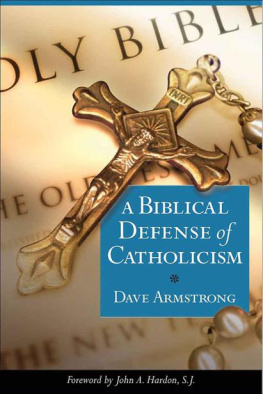
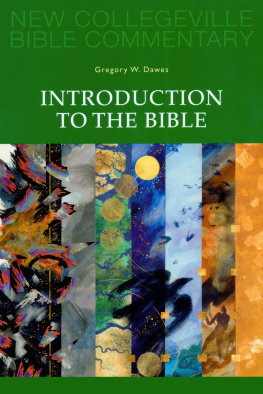
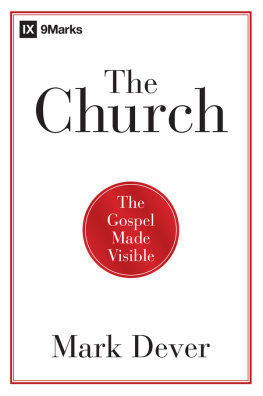
![Scott Hahn [Inconnu(e)] - Scripture Matters: Essays on Reading the Bible From the Heart of the Church](/uploads/posts/book/134760/thumbs/scott-hahn-inconnu-e-scripture-matters-essays.jpg)




